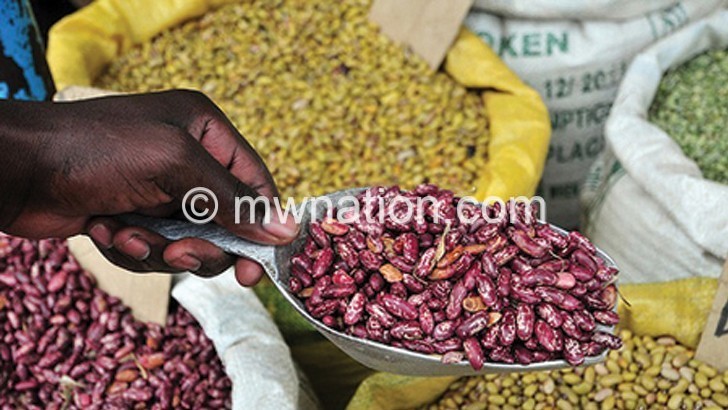Project pushes up legumes output
A project dubbed Legumes Enterprise and Structured Production (Lesp) has pushed up legumes output by 18 percent to about 109 000 kilogrammes (kg) with over 7 000 farmers growing the crops.
Lesp, an initiative of Comsip Cooperative Union, enhances the role of legumes in food, nutrition, income security and sustainable agriculture and is being implemented in collaboration with the Ministry of Agriculture, Irrigation and Water Development.

The initiative encourages members to grow legumes as an income generating activity as well as a nutrition project.
The project is in line with the National Export Strategy (NES) that emphasises on the production of pulses for export.
In an interview on Monday, Comsip operations manager Susan Kondowe said the union in a matching grant principle, provides support extension services under Lesp, a value chain initiative under the Livelihood and Skills Development (Lisd) which helps Comsip members to enhance to be linked to markets and earn incomesto improve their livelihood.
Said Kondowe: “The farmers we are working with are supported with seed, fertiliser, pesticides and protective wear such as facemasks and gloves.
“This initiative is in the third year and promotes the production of selected legumes such as soya beans, sugar beans [kholophete] and pigeon peas which serves as an investment in addition to meeting the needs for nutrition and health.”
He said last year, the farmers produced 48 000 kilogrammes (kg) of soya, 48 000kg of beans and 13 000kg of pigeon peas for both seed and consumption.
“The way we are implementing this project is through a matching grant principle, where in the first year, Comsip contributes 70 percent of the production cost and the cooperative contributes 30 percent.
“In the second year, both contribute 50 percent and by the third year, the cooperative contributes 70 percent of the production cost while Comsip contributes 30 percent. Apart from that, we also train legume aggregators and once the crop is harvested Comsip provides the members with a ready market,” she said.
A Kasungu-based farmer who has benefited from the project, Martha Phiri, earned K300 000 after selling 300 bags of beans last year.
“My life has completely changed and I am able to send my three children to school without any challenges. This year, I plan to earn K500 000,” said the farmer who belongs to Masomphenya cluster.
Another farmer, Martin Chiphesi of Mikundi Home-grown cluster in Mchinji, said they expect to harvest 50 bags weighing 150 kg each if the rains are good.
The benefits of Comsip members growing legumes is three fold.
They earn income from sales, bonus and dividends at the end of the year if Comsip makes a profit.
Last week, Export Development Fund (EDF), a financing institution for export business, and AHL Commodities Exchange (AHCX) announced a partnership that will enable the two institutions to engage farmers to grow beans, sunflower and groundnuts for the export market.
The two institutions have already found markets for the crops. n





